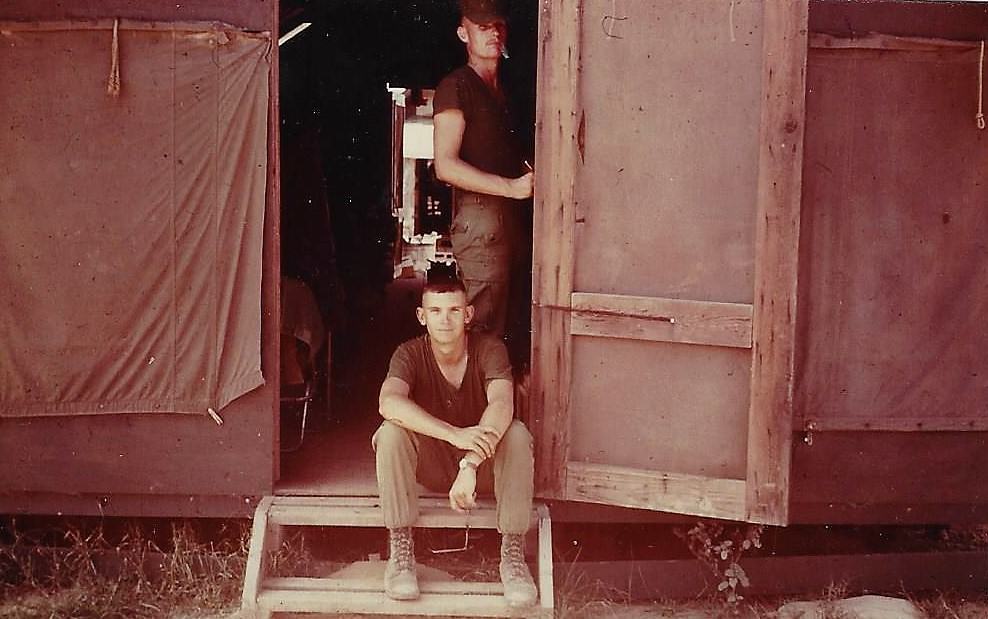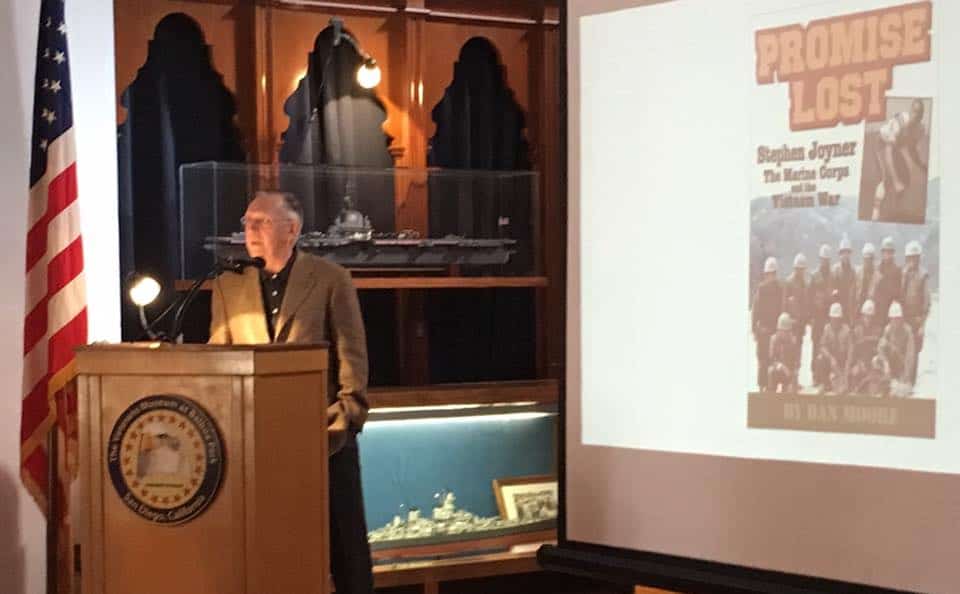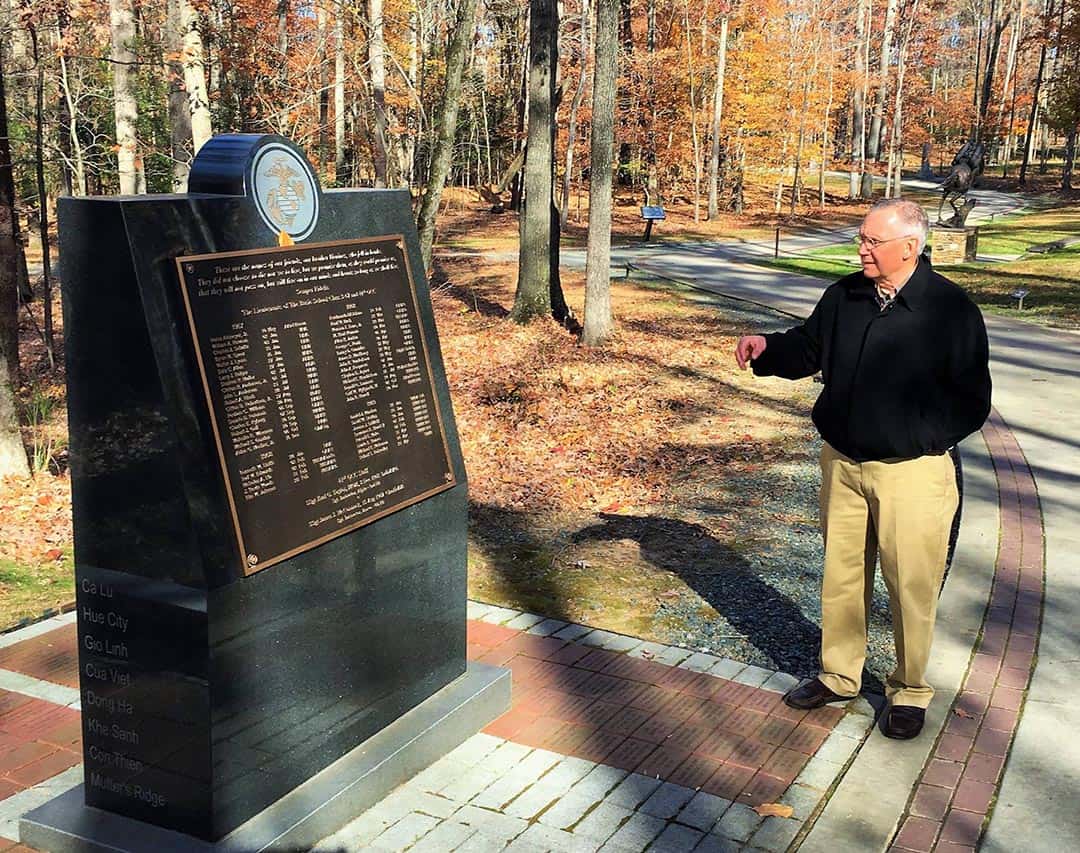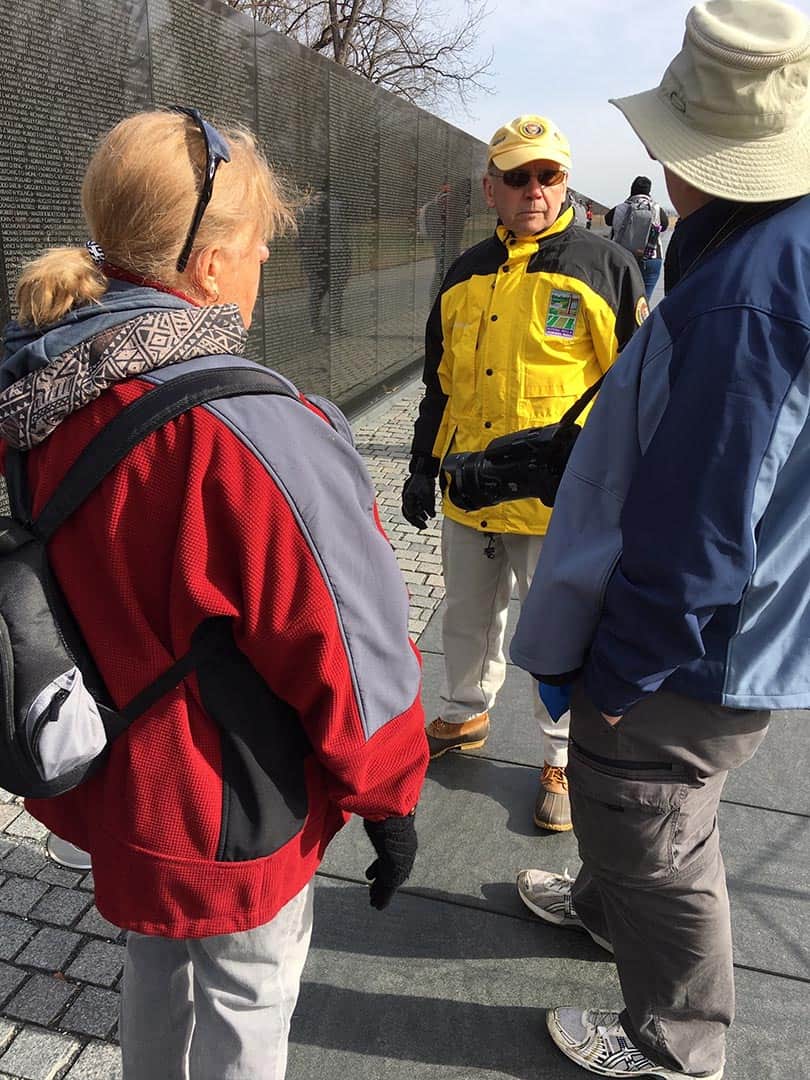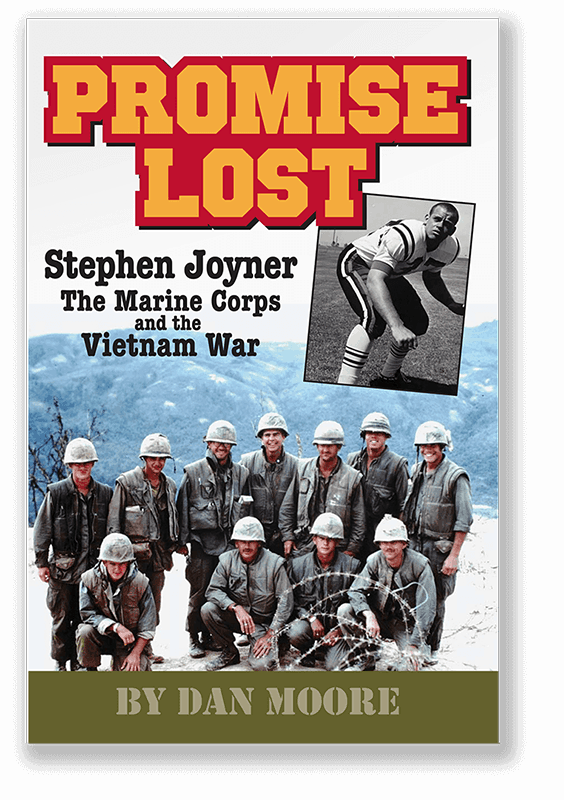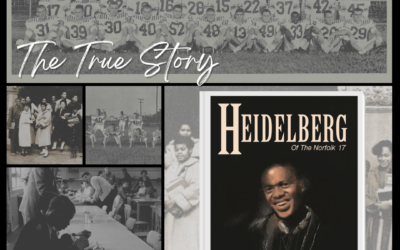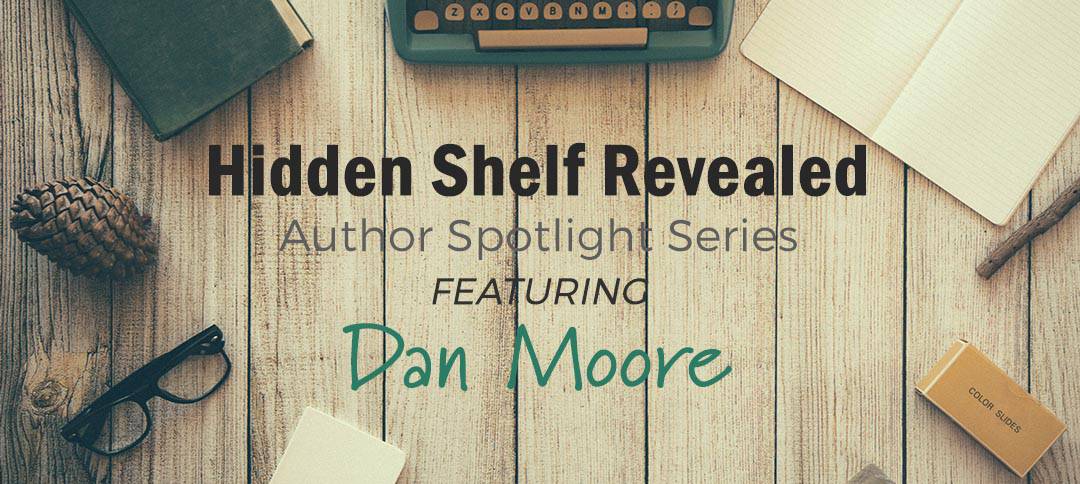
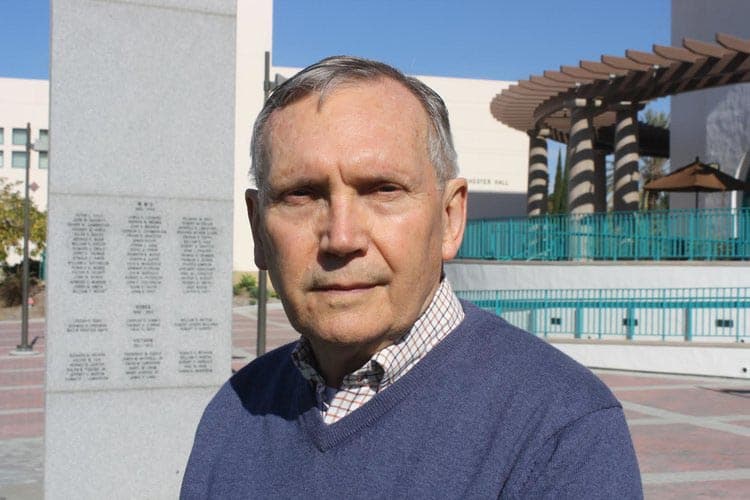
Basic info:
Full Name: James Daniel Moore
Do you write under a pseudonym? How did you decide which name(s) to include on your books? No. I put the name I go by, Dan Moore, simpler the better.
Printed works: Promise Lost: Stephen Joyner, the Marine Corps and the Vietnam War. As well as numerous academic articles and book reviews.
Current Projects: Author’s Expanded Revision of Promise Lost: Memoir of my year in Vietnam, 1967-68
Background, Growing up, and a little bit about yourself:
If you had to describe yourself in two words, what would they be?
Resilient and determined
Where did you grow up?
Primarily on the west coast as a Navy kid. Whenever my Dad went on sea duty, my mother would drive us kids back to a small town in rural southeast Arkansas. I got to know relatives, what farm life was like, and appreciate the values of the people who called it home. Rural America is near and dear.
Briefly describe your hometown:
It was like Mayberry, everyone knew everyone else. It was one big extended family.
Tell us a little bit about your parents:
Both parents were from this area. My mother grew up in a traditional family cluster, the oldest sibling and only daughter with four brothers. My father had a difficult childhood, his father murdered by someone who had a secret affair with his mother. His mother, my grandmother, remarried someone else who abused my Dad and his older brother. The family moved from the Ozark hills to southeast Arkansas during the Great Depression to farm and start anew. Shortly after the move, their stepfather kicked my Dad and his brother out of the house when they were in their teens. Friends took them in for a couple of years. My Dad had to drop out of high school to work for a year, but he returned, graduated and joined the Navy, never looking back. To his credit, my Dad never told me the details of his childhood and how his father died until much later in life. When he told me, all the questions I had about him for many years seemed to fall into place.
Do you have siblings? What was your relationship like with your siblings growing up?
Three sisters and a brother. One sister took her own life.
As a child did you enjoy school? What kind of student were you?
I liked school from the start, I was a good student. As a military brat, I transferred in and out of many schools, sometimes several times a year. While it left some holes in my education, I adapted quickly and the experience enabled me to make friends quickly and easily.
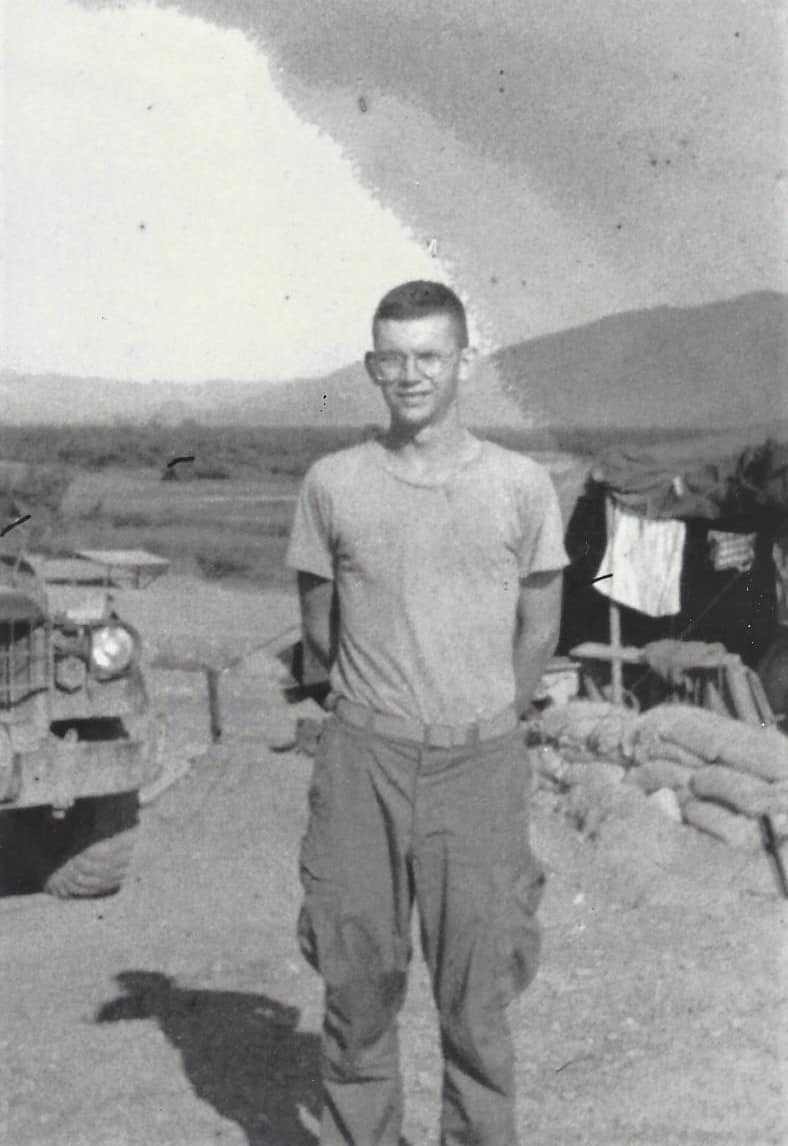
What were you like in high school?
Again, transferred to a new high school as a mid-year junior. In high school, I began to focus on the liberal arts, especially history and literature.
When you were younger, what did you “want to be when you grew up”?
Thought I wanted to teach. As a college student, I began to consider getting a PhD and teaching at college level. That changed when in a doctoral program, after Vietnam, I decided to complete the degree, but to work for the Central Intelligence Agency.
What is your favorite musical artist or type of music?
Classical Music, esp Baroque era, Bach and Handel.
Do you have any skills or talents that most people don’t know about?
I couldn’t fry an egg until I was in grad school in my late 20s. My wife, Pat, and I cook together now and I’d say I am an adventurous, if not a good, cook.
What is your biggest Pet Peeve?
Use of apostrophes rather than using the plural noun form. Eg, I like board game’s; rather than board games.
Was there a teacher or teachers who had a particularly strong influence on your life? Tell me about them.
A history professor as an undergraduate became a close friend after graduation. He provided unconditional support and friendship over the years.
On Books and Writing:
What literary pilgrimages have you gone on?
I want to go on a tour of places associated with Shakespeare in London, it is on my bucket list.
What is your favorite childhood book?
The Runaway Bunny, Margaret Wise Brown; The Polar Express, Chris Van Allsburg
Favorite authors and books as an adult?
Anything Shakespeare; Michael Archer’s Khe Sanh Trilogy on the Vietnam War
What time of the day do you usually write?
I write best early in the day, before noon, but if I am on a roll, I can write anytime.
What is the most difficult part about writing for you?
Choosing the right word in a complicated sentence.
Describe a typical writing day.
Writing by 9am, short breaks every 30 mins. I can go for long stretches.
Reading, sports activities, gardening, working out, art-house movies.
When did you first realize that you wanted to be an author?
I promised myself I would write Steve Joyner’s story in 1968. I completed it fall 2016. Research began in the summer of 2014.
What would you say is your interesting writing quirk?
Using particular abbreviations, which stems from extensive note-taking in my doctoral history program.
What book is currently on your bedside table?
Donald Richie, Ozu, Charles Doughty, Travels in Arabia Deserta, Claude Clottes, What is Paleolithic Art: Cave Paintings and the Dawn of Human Creativity.
What suggestions would you give to aspiring writers?
Write, write, write, preferably not in longhand.
Are you on social media and can your readers interact with you?
Facebook, only b/c of Promise Lost. I post on average every 7-10 days on the PL FB site.

Rachel Wickstrom coordinates marketing at Hidden Shelf Publishing house. She’s an avid reader, master party-planner, craft enthusiast, a mom to two young boys with wildly long hair, and is married to a hospital chaplain. As an Oregon native, Rachel’s childhood memories are scented with juniper berries and the crisp mountain air of Central Oregon. She currently lives in Boise, Idaho where her days are scented with lukewarm coffee, and spilled snacks.
Recent Posts
Summer Reading List 2024
Summer Reading List–
12 books that I am adding to my TBR list this summer and 12 Hidden Shelf titles that you should add to yours!
Black History– On This Day in 1959
Black History – On This Day in 1959
The Norfolk 17–February 2, 1959
Sixty-five years ago today, seventeen cautiously brave Black teenagers rocked the foundation of the racist South, accomplishing what many at the time had thought impossible … ending segregation at six public schools in Norfolk, Virginia. If getting there had been a war, being there was horrendous.
2023 Holiday Gift Guide
Unique and creative gifts ideas for the 2023 holiday season!

